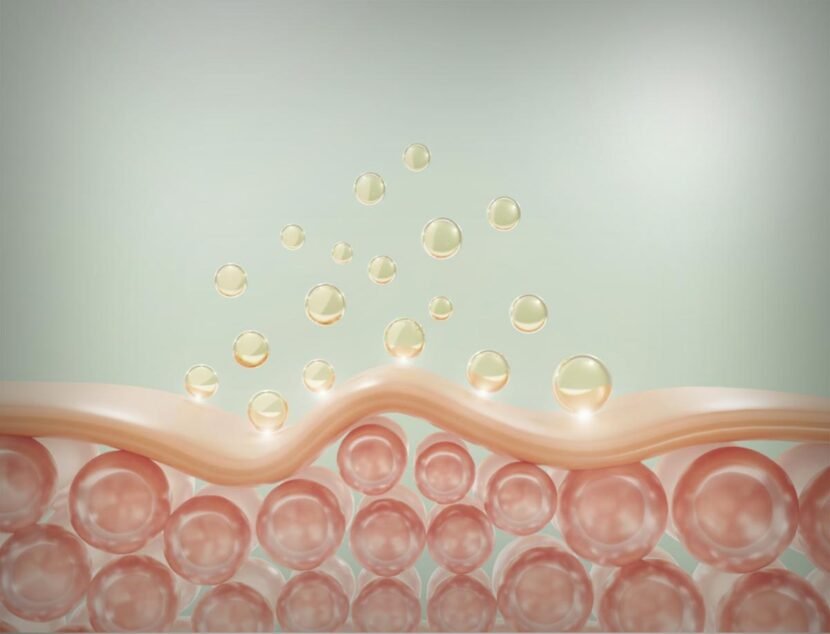Eczema, also known as atopic dermatitis, is a chronic skin condition that affects millions of people worldwide. It is characterized by red, itchy, and inflamed skin, and can be triggered by a variety of factors including genetics, environmental allergens, and stress. Research has shown that eczema is linked to a dysfunction in the skin barrier, which allows irritants and allergens to penetrate the skin and trigger an immune response.
This leads to inflammation and the characteristic symptoms of eczema. Studies have also shown that individuals with eczema have an imbalance in their skin microbiome, with a decrease in beneficial bacteria and an increase in harmful bacteria. This imbalance can further exacerbate the symptoms of eczema and contribute to the chronic nature of the condition.
Understanding the underlying mechanisms of eczema has led researchers to explore potential treatments that target the skin microbiome, including the use of probiotics.
Key Takeaways
- Research suggests that eczema is linked to an imbalance in the skin’s microbiome, leading to inflammation and skin barrier dysfunction.
- Probiotics have been shown to potentially improve eczema symptoms by restoring the balance of good bacteria on the skin.
- Common eczema symptoms include dry, itchy, and inflamed skin, and probiotics may help alleviate these symptoms by promoting a healthy skin microbiome.
- Probiotics play a role in eczema treatment by reducing inflammation, strengthening the skin barrier, and modulating the immune response.
- Experts recommend incorporating probiotics into your eczema management plan through dietary sources or supplements, but more research is needed to fully understand their effectiveness.
The Link Between Probiotics and Eczema Symptoms
Probiotics and Eczema: The Research
Several studies have investigated the link between probiotics and eczema, with promising results. One study published in the Journal of Allergy and Clinical Immunology found that pregnant women who consumed probiotics during pregnancy had a reduced risk of their child developing eczema in early childhood. Another study published in the British Journal of Dermatology found that infants who were given probiotics during the first 6 months of life had a lower risk of developing eczema compared to those who did not receive probiotics.
The Role of Probiotics in Modulating the Immune System
These findings suggest that probiotics may play a role in modulating the immune system and reducing inflammation, which are key factors in the development and progression of eczema. By promoting a healthy balance of beneficial bacteria in the gut and on the skin, probiotics may help to support the skin barrier function and reduce the severity of eczema symptoms.
Potential Benefits for Eczema Sufferers
Overall, the research suggests that probiotics may be a useful adjunct therapy for managing eczema symptoms, particularly in early childhood. Further research is needed to fully understand the mechanisms by which probiotics exert their beneficial effects on the skin, but the existing evidence is promising.
Common Eczema Symptoms and How Probiotics May Help
Eczema can manifest in a variety of symptoms, including redness, itching, dryness, and inflammation of the skin. These symptoms can be not only uncomfortable but also have a significant impact on a person’s quality of life. Traditional treatments for eczema often focus on managing symptoms with topical corticosteroids and moisturizers, but these treatments may not address the underlying causes of the condition.
Probiotics offer a different approach to managing eczema by targeting the root cause of the condition. By promoting a healthy balance of bacteria in the gut and on the skin, probiotics may help to strengthen the skin barrier and reduce inflammation, which are key factors in the development and progression of eczema. This can lead to a reduction in symptoms such as itching, redness, and dryness, as well as a decrease in the frequency and severity of eczema flare-ups.
In addition to their potential impact on skin health, probiotics may also help to support overall immune function, which is often dysregulated in individuals with eczema. By modulating the immune response, probiotics may help to reduce the hyper-reactivity of the immune system that contributes to inflammation and itching in eczema. This dual action on both the skin barrier and immune system makes probiotics a promising option for managing eczema symptoms.
The Role of Probiotics in Eczema Treatment
The role of probiotics in eczema treatment is still being explored, but there is growing evidence to support their use as a complementary therapy for managing eczema symptoms. Probiotics may be particularly beneficial for individuals who experience frequent flare-ups or have not responded well to traditional treatments such as topical corticosteroids. One way that probiotics may be used in eczema treatment is through oral supplementation.
By consuming probiotic-rich foods or taking probiotic supplements, individuals may be able to support their gut microbiome and promote a healthy balance of bacteria throughout their body, including on their skin. This can help to reduce inflammation and strengthen the skin barrier, leading to a decrease in eczema symptoms over time. Another approach to using probiotics in eczema treatment is through topical application.
Some skincare products now contain probiotics or prebiotics (substances that promote the growth of beneficial bacteria) to support the skin microbiome and improve skin barrier function. These products may help to soothe irritated skin, reduce redness and itching, and promote overall skin health for individuals with eczema.
Probiotics and Eczema: What the Experts Say
Experts in dermatology and immunology have been closely following the research on probiotics and their potential impact on eczema. While more studies are needed to fully understand the mechanisms behind probiotics’ effects on eczema, many experts are optimistic about their potential as a complementary therapy for managing eczema symptoms. Dr. Peter Lio, a dermatologist and clinical assistant professor at Northwestern University Feinberg School of Medicine, has expressed enthusiasm about the use of probiotics for eczema. He notes that while more research is needed, there is evidence to suggest that probiotics may help to modulate the immune system and reduce inflammation, which are key factors in eczema development. Dr. Whitney Bowe, a board-certified dermatologist and clinical assistant professor at Icahn School of Medicine at Mount Sinai Medical Center, has also spoken about the potential benefits of probiotics for eczema. She highlights that probiotics may help to support a healthy balance of bacteria on the skin and reduce inflammation, which can lead to improvements in eczema symptoms over time.
Incorporating Probiotics into Your Eczema Management Plan
Consulting a Healthcare Professional
If you’re considering adding probiotics to your eczema management plan, it’s essential to consult with a healthcare professional to determine the best approach for your individual needs.
Incorporating Probiotics into Your Routine
There are several ways to incorporate probiotics into your daily routine, including making dietary changes and taking supplements. One option is to consume probiotic-rich foods such as yogurt, kefir, sauerkraut, and kimchi as part of a balanced diet. These foods contain live cultures of beneficial bacteria that can help support your gut microbiome and potentially have a positive impact on your skin health.
Choosing the Right Probiotic Supplement
Another option is to take probiotic supplements, which are available in various forms including capsules, powders, and liquids. When choosing a probiotic supplement, it’s crucial to look for products that contain strains specifically studied for their effects on skin health, such as Lactobacillus rhamnosus and Bifidobacterium lactis.
Topical Probiotics for Skin Health
In addition to oral supplementation, you may also consider using skincare products that contain probiotics or prebiotics to support your skin microbiome. These products can be used topically to help soothe irritated skin, reduce redness and itching, and promote overall skin health for individuals with eczema.
The Future of Probiotics in Eczema Treatment
As research on probiotics and their impact on eczema continues to evolve, it is likely that we will see an increasing focus on personalized approaches to using probiotics for managing eczema symptoms. This may involve identifying specific strains of bacteria that are most beneficial for individuals with eczema based on their unique microbiome composition. In addition to personalized approaches, there is also ongoing research into developing new formulations of probiotics that are specifically targeted for improving skin health.
This includes exploring different delivery methods for probiotics, such as encapsulation techniques that protect live bacteria from stomach acid so they can reach the intestines intact. Overall, the future of probiotics in eczema treatment looks promising, with potential for more targeted and effective therapies that address the underlying causes of eczema. As our understanding of the skin microbiome continues to advance, we can expect to see more innovative approaches to using probiotics for managing eczema symptoms in the years to come.
FAQs
What are probiotics?
Probiotics are live microorganisms, often referred to as “good” bacteria, that can provide health benefits when consumed in adequate amounts.
What is eczema?
Eczema, also known as atopic dermatitis, is a condition that causes the skin to become inflamed, itchy, and red. It is a common skin condition that can affect people of all ages.
How can probiotics help control eczema symptoms?
Some studies suggest that probiotics may help improve eczema symptoms by modulating the immune system and reducing inflammation. However, more research is needed to fully understand the effects of probiotics on eczema.
What are some sources of probiotics?
Probiotics can be found in certain foods, such as yogurt, kefir, sauerkraut, and kimchi. They are also available in the form of dietary supplements.
Are probiotics safe for everyone to consume?
In general, probiotics are considered safe for most people. However, individuals with weakened immune systems or serious underlying health conditions should consult with a healthcare professional before taking probiotic supplements.
Can probiotics completely cure eczema?
While probiotics may help alleviate eczema symptoms for some individuals, they are not a guaranteed cure for the condition. It is important to consult with a healthcare professional for personalized treatment recommendations.




